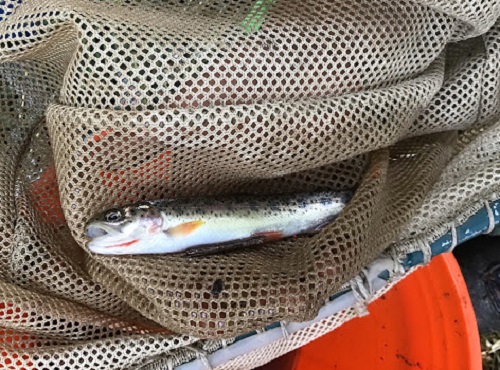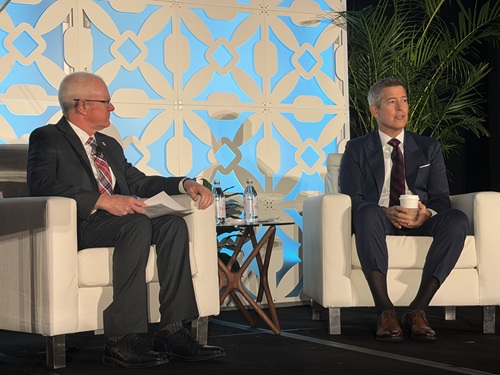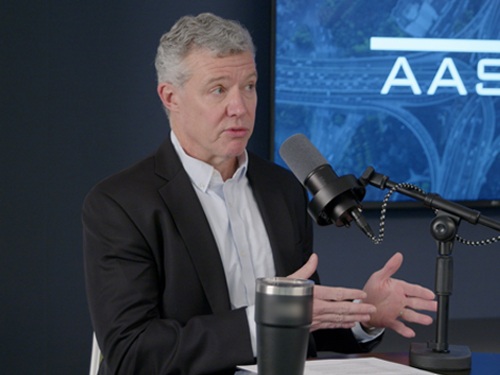The Federal Highway Administration has issued $196 million to 59 tribal, state, and local governments in support of projects fixing or removing 169 culvert barriers to improve fish passage.
[Above photo by WSDOT]
The FHWA said outdated culverts and other infrastructure can cause roads to flood and severely restrict or altogether block fish passage.
To that end, the agency noted this $196 million in grant funding via its Culvert Aquatic Organism Passage or Culvert AOP program should improve approximately 550 miles of stream habitat, often in the watersheds that support iconic fish runs in ecosystems including Yakutat Bay, the Puget Sound, the Columbia River, the Rogue River, the Chesapeake Bay, and Plymouth Harbor.
FHWA said that grant funding comes from over $2 billion earmarked for fish passage investments within by the Infrastructure Investment and Jobs Act or IIJA enacted in 2021.

Several fish species listed under the federal Endangered Species Act are expected to benefit from access to pristine habitats as a result of restored passage, FHWA added.
The agency pointed out that its Culvert AOP program seeks to boost the health of fisheries by helping communities remove, repair, and redesign culverts and weirs – both engineered structures that impact the flow of water in rivers and streams.
FHWA said barriers to freshwater migration are a major cause of declining populations of anadromous fish – such as native salmon, steelhead, river herring and lamprey – which are born in freshwater waterways, live primarily in the ocean, but return to freshwater streams to spawn.
“This first round of culvert grants will improve resilience and reduce maintenance at these waterway crossings while providing ecological, cultural and conservation benefits to communities receiving grants,” noted FHWA Administrator Shailen Bhatt in a statement.
“The program’s many benefits to the natural environment will spill over into local economies that depend on growing fish populations to sustain tribal and local communities across the nation,” he said.
Several state departments of transportation are receiving funds from this round of FHWA Culvert AOP grants, including the Maine Department of Transportation, which will receive $9.2 million to replace nine barriers at road crossings in historic coastal fishing communities, which qualify as disadvantaged and underserved communities.
Replacing these barriers will improve access to 37 miles of habitat for fish and will also benefit fish species that are culturally important to the five federally recognized Native American tribes residing in Maine, FHWA said.
The agency noted that there are roughly 68 million culverts carrying roadways that were built with design approaches dating from the 1950s, which did not consider the needs of aquatic organisms to move up and downstream.
The Culvert AOP Program represents a change in the state of practice toward a “transformative and more holistic approach” to water crossings, the agency said; a change that should result in “more robust fish populations” that are critical to local economies and Native communities, as well as creating safer, more resilient structures, FHWA pointed out.
 Nation
Nation
Fireside Chat: USDOT Secretary Lays Out Policy Focus
February 25, 2026 Nation
Nation

